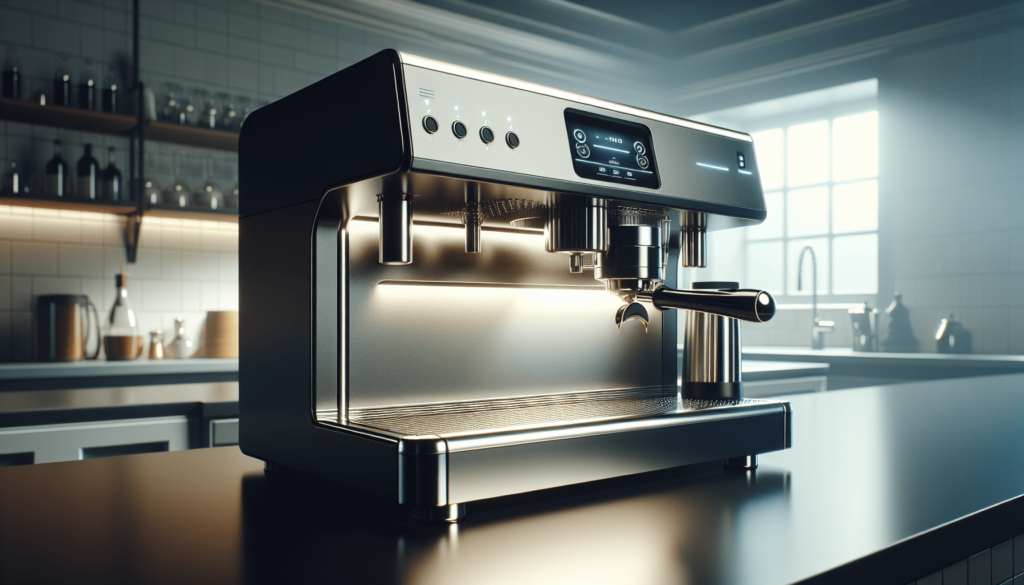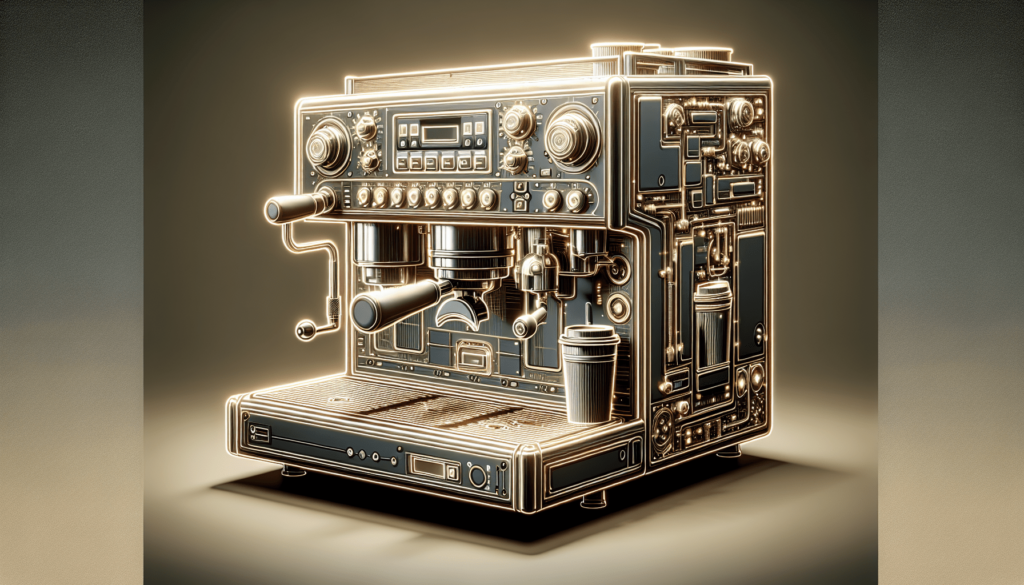Have you ever wondered about the life expectancy of a super automatic espresso machine? These technological marvels can churn out espresso at the touch of a button, but how long do they really last? Understanding this can help you make a wise investment and prepare for the future maintenance of your machine.

What is a Super Automatic Espresso Machine?
A super automatic espresso machine is a sophisticated device that automates the coffee-making process, from grinding the beans to frothing the milk. These machines are designed to provide a cafe-like experience at home or in the office with minimal effort. You can enjoy a variety of coffee drinks, including espresso, cappuccino, and latte at the push of a button.
Features of Super Automatic Espresso Machines
These machines are packed with features designed to make brewing coffee as convenient as possible. Here’s a list of some of the features you might find:
| Feature | Description |
|---|---|
| Integrated Grinder | Grinds coffee beans to the perfect consistency. |
| Milk Frothing | Automated milk frothing for cappuccinos and lattes. |
| Preset Programs | One-touch buttons for different coffee types. |
| Adjustable Settings | Customizable settings for grind size, coffee strength, and milk viscosity. |
| Self-Cleaning | Automated cleaning cycles for ease of maintenance. |
Understanding these features helps you comprehend the complexity of these machines and why their lifespan matters.
Factors Influencing the Lifespan
The life expectancy of a super automatic espresso machine depends on various factors, including build quality, usage, and maintenance. Knowing these factors can help you anticipate how long your machine will last and how you can extend its life.
Build Quality
The materials and craftsmanship used in constructing the machine have a significant impact. Machines made from high-quality components tend to last longer. Stainless steel parts, for example, are more durable than plastic ones.
Usage
How frequently you use your espresso machine also affects its lifespan. Machines used in a commercial setting will wear out more quickly than those used occasionally at home. A machine designed for home use might brew 1-3 cups a day, whereas a commercial machine might handle hundreds.
Maintenance
Proper maintenance is crucial for the longevity of your espresso machine. Regular cleaning, descaling, and part replacements can significantly extend its life. Neglecting maintenance can lead to malfunctions and a shortened lifespan.
Typical Lifespan of Super Automatic Espresso Machines
Most super automatic espresso machines are designed to last between 5 and 10 years, but a well-maintained machine can last even longer. The table below summarizes the typical lifespan based on different scenarios:
| Usage Type | Lifespan in Years |
|---|---|
| Home Use (Low) | 7-10 |
| Home Use (High) | 5-7 |
| Commercial Use | 3-5 |
These figures are estimates, and actual lifespans can vary based on individual circumstances.

Importance of Usage Intensity
Usage intensity refers to how much you use your machine daily. A machine brewing several cups of coffee each day will experience more wear and tear than one that’s used less frequently. This makes understanding your own usage patterns crucial in estimating your machine’s longevity.
Daily Usage Scenarios
Different households and businesses have varying coffee needs. Here are some common scenarios and their impacts:
| Scenario | Daily Cups | Expected Lifespan |
|---|---|---|
| Single Household | 1-3 cups | Longer lifespan |
| Family Household | 4-6 cups | Moderate lifespan |
| Small Office | 8-12 cups | Shorter lifespan |
| Cafe/Restaurant | 50+ cups | Shortest lifespan |
By identifying your daily usage pattern, you can more accurately predict how long your espresso machine will serve you.
Role of Maintenance in Lifespan
Consistent and proper maintenance can add years to your espresso machine’s life. Neglecting maintenance can shorten it significantly. Here are the main maintenance tasks you should prioritize:
Cleaning
Daily and weekly cleaning routines are essential. Residual coffee oils and milk can clog the machine and affect flavor quality. Follow the manufacturer’s cleaning guidelines to ensure thorough upkeep.
Descaling
Hard water deposits can accumulate in your machine’s internal components, leading to malfunctions. Regular descaling, as recommended by the manufacturer, helps remove these deposits and keeps your machine running smoothly.
Replacing Parts
Certain components, like water filters, grinding burrs, and gaskets, have limited lifespans and need regular replacement. Keeping track of these parts and replacing them as needed can prevent larger issues down the line.
Signs Your Machine Needs Attention
Even with diligent maintenance, your espresso machine will eventually show signs of wear. Recognizing these signs early can help you address issues before they become severe.
Common Indicators
Here are some common signs that your machine may need repairs or replacements:
| Sign | Possible Issue |
|---|---|
| Slower Brewing Time | Clogged filters or buildup |
| Altered Coffee Taste | Residual coffee oils or old beans |
| Loud Noises | Motor or grinder issues |
| Leaking Water | Faulty gaskets or seals |
| Error Messages | Software or mechanical malfunctions |
Addressing these issues promptly can save you from more costly repairs or even needing to replace the machine.
Repair vs Replacement
When your super automatic espresso machine starts showing signs of aging, you might wonder whether it’s better to repair it or replace it altogether. There are several factors to consider:
Cost of Repairs
If your machine requires frequent repairs, the costs can add up quickly. Compare the total repair costs to the price of a new machine to gauge which option is more economical.
Technological Advancements
Newer models often come with advanced features and improved efficiency. If your machine is outdated, upgrading to a newer model might offer better performance and a longer lifespan.
Availability of Parts
For older machines, finding replacement parts can become challenging or expensive. If parts are too costly or unavailable, replacement may be the more viable option.
Extending the Lifespan of Your Machine
Investing in some additional accessories and adopting some best practices can help extend your machine’s lifespan.
Use High-Quality Beans
Always use fresh, high-quality coffee beans. Cheap or stale beans can leave more residue and require more frequent cleanings, wearing out your machine faster.
Invest in Water Filters
Hard water can do significant damage over time. Investing in a good water filter can minimize mineral buildup in your machine’s internal components, extending its lifespan.
Regular Professional Servicing
Occasional professional maintenance can address issues you might miss and extend the life of your machine. Some manufacturers even offer servicing packages.
Conclusion
Understanding the life expectancy of a super automatic espresso machine involves considering numerous factors, from build quality and usage intensity to maintenance routines. By recognizing what affects your machine’s longevity and taking appropriate steps for its care, you can significantly extend its life and enjoy cafe-quality coffee for years. Remember, a well-maintained machine doesn’t just last longer—it also consistently delivers the rich, flavorful coffee you love.
